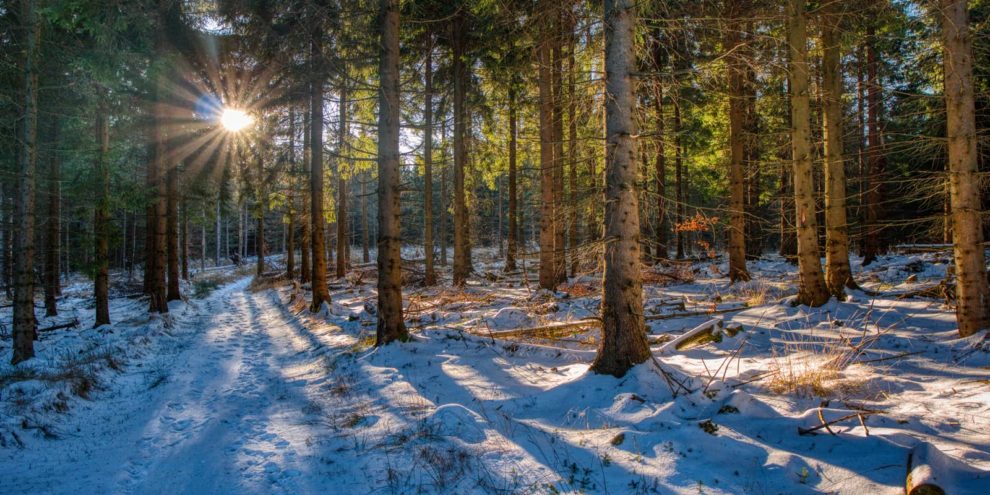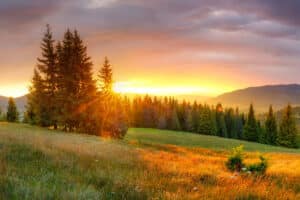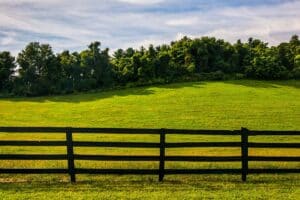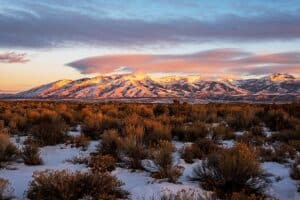When you start thinking about buying recreational land for sale to call your own, it’s important to realize that this is quite different from buying a house.
Every piece of property is different, and it’s important to work with a recreational real estate expert to help you avoid some of the common pitfalls recreational buyers sometimes experience.
Recreational land buyers we work with at PotlatchDeltic often talk about how they haven’t made this type of purchase before, so they appreciate it when an expert helps them along the way, and when they find a property where there are no significant issues, reducing the chance of surprises in the buying process.
So how will you know what potential pitfalls to look for? Ask questions – lots of them. For some assistance, here are six tips that can help as you do your homework:
- Make sure you know what’s happening on neighboring properties.
If you want to have a quiet retreat, make sure the neighboring properties won’t disturb your peace. Have your real estate broker check into allowed uses on neighboring properties, and visit on different days and times to make sure what you think is going on next door is actually the case. Your property may also be adjacent to public land, so understand the seasonal use of that acreage, knowing that it could benefit your ownership by expanding the use of your property simply by its proximity. - Know that having unrestricted access to your property is a must.
Often, a property is surrounded by other properties and may not have public road access – but don’t be worried about that. A knowledgeable recreational real estate professional will work with you to ensure that the property you want to buy has clear, legal access, either from a public roadway or with an access easement through surrounding properties. - Evaluate the topography of the property.
If your property is in the North, think about how snow may build up around structure, and how rainwater or melting snow will drain. And if the property is in the South, consider potential issues like water drainage if the property has steep terrain. Think about these things now: Topography maps, aerial photography and drone footage can all be helpful tools to evaluate the acreage. - Learn about any rules and regulations that pertain to the property.
Are there any covenants, conditions and restrictions (CC&Rs) that come with the property? Is there zoning that might impact how you build on the site? This can vary depending upon your plans for the property – whether you’re building a cabin or planning to improve the site. Ask your broker, who can help you get the information you’ll need to make sure your plans are achievable. If there’s an existing structure that you would like to keep, make the necessary repairs to ensure that the building is safe. - Make sure the timber on the property will match your plans.
Many recreational property buyers want to consider potential revenues from harvesting timber as they weigh a purchase. Evaluating tree stands and income potential from a harvest requires specific experience, so work with a real estate brokerage that has registered foresters on staff or has access to them. - Consider the recreational opportunities on the property and nearby, to make sure your family and friends will love being there.
If you are looking for a property that appeals to the whole family, make sure there’s a wide variety of things to do there. And if it’s for hunting, make sure the tract has all the things wildlife look for, like water and food sources.
If all this seems complicated and a lot to figure out, don’t worry. Working with a recreational real estate sales professional will make the process manageable, working towards the goal of owning a property that you and your family will enjoy for years to come.
Written by Mark Bice, Senior Real Estate & Acquisitions Manager for PotlatchDeltic, which sells recreational properties in six states – Alabama, Arkansas, Idaho, Louisiana, Minnesota and Mississippi.
This content may not be used or reproduced in any manner whatsoever, in part or in whole, without written permission of LANDTHINK. Use of this content without permission is a violation of federal copyright law. The articles, posts, comments, opinions and information provided by LANDTHINK are for informational and research purposes only and DOES NOT substitute or coincide with the advice of an attorney, accountant, real estate broker or any other licensed real estate professional. LANDTHINK strongly advises visitors and readers to seek their own professional guidance and advice related to buying, investing in or selling real estate.










Add Comment